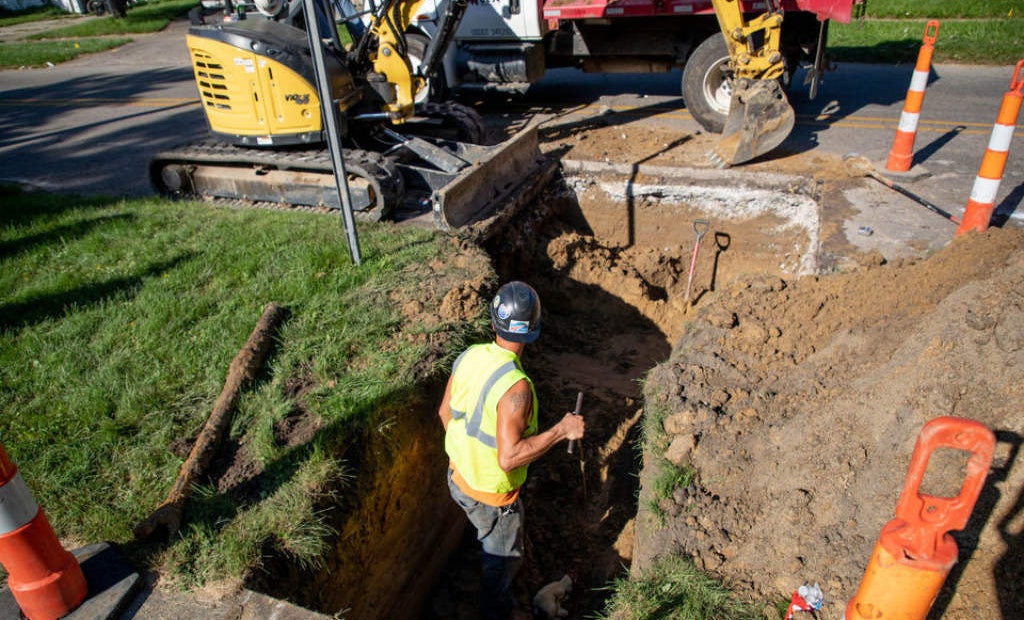Interested in Infrastructure?
Get Infrastructure articles, news and videos right in your inbox! Sign up now.
Infrastructure + Get AlertsThe city of Flint, Michigan, may run out of money to replace its remaining lead pipes before all have been removed. According to a recent report in the Flint Journal, that’s because of city leadership’s continued refusal to use hydroexcavation in the identification of service lines.
The report states that the price of digging up and burying a copper pipe has increased from $285 to $3,513 since the use of hydroexcavation was halted in June. So far this year, 7,060 homes have been checked, 79 percent of which had copper pipes. The city will pay $19.4 million for digging them up and reburying them.
“The city’s illogical approach means that hundreds of lead and steel pipes will likely stay in the ground and in use, and Flint families will remain in harm’s way in the meantime,” Cyndi Roper, of the Natural Resources Defense Council, told the Flint Journal.
Flint Mayor Karen Weaver banned the use of hydroexcavation due to concern that the method was missing spliced lines that weren’t made up entirely of copper. Since the ban, contractors have had to use traditional excavation methods for digging 8 to 10-foot-wide holes and uncovering the pipe, though as one contractor on the project noted, hydroexcavation could still accomplish the same thing.
“We’re digging the same hole whether it’s with a hydrovac or a backhoe,” Joe Parks, project manager for Goyette Mechanical, told the Flint Journal. “When you take away a tool from us that we planned on utilizing, it slows us down and makes the job more dangerous and expensive.”
Parks estimates that Goyette Mechanical will incur $500,000 in extra costs by the end of the project if the ban on hydroexcavation continues.
According to the Flint Journal, at the current rate the city is finding and replacing hazardous service lines, 1,280 of the estimated remaining 4,800 will be replaced.
Source: Flint Journal






